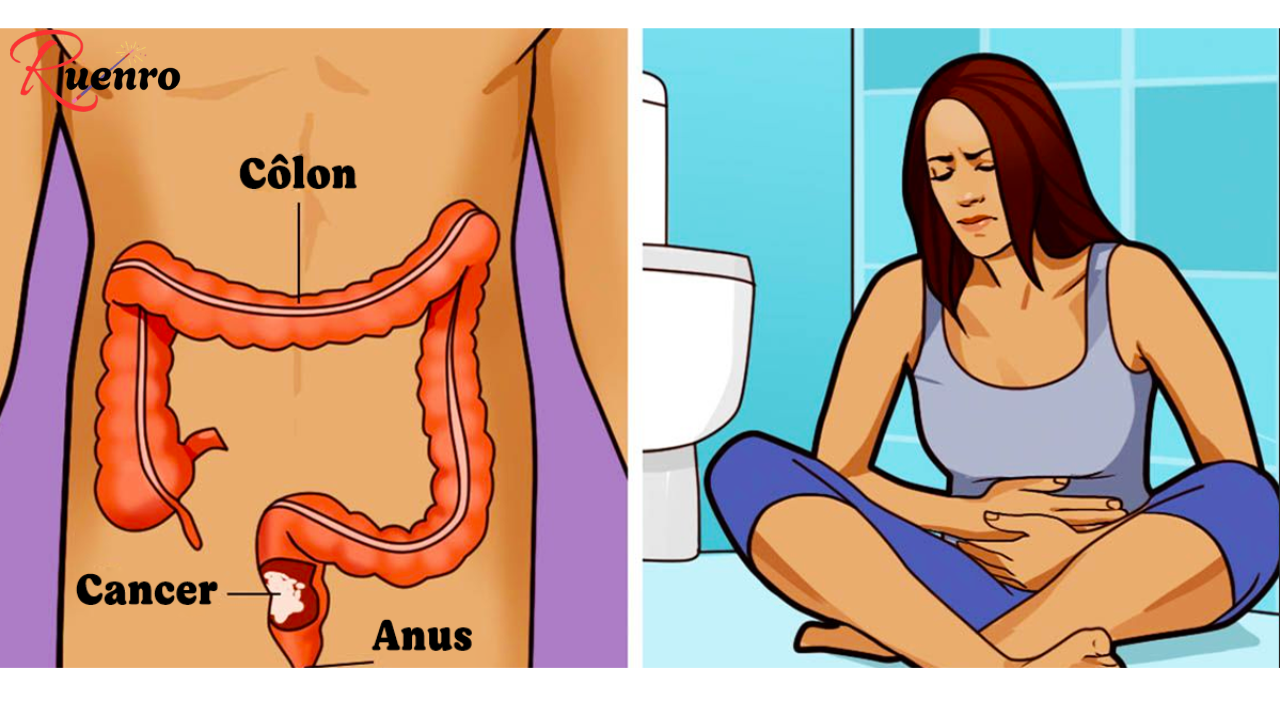Unusual signs of colon cancer that women often ignore
Colon cancer (also called colorectal cancer) is one of the most common cancers worldwide — and one of the most preventable when caught early. It develops in the large intestine (colon) or rectum, often starting as small, benign growths called polyps that can become cancerous over time.
Many people think colon cancer affects only older men, but that’s a dangerous myth. In recent years, colon cancer rates have been rising among women under 50, partly because early symptoms are easy to dismiss or confuse with other conditions.
Recognizing the unusual and subtle signs can literally save your life. Here are the top warning signs of colon cancer that women often ignore, and why paying attention to them is crucial.
1. ⚠️ Unexplained Fatigue That Doesn’t Go Away
Feeling tired all the time? Not just from lack of sleep or stress?
Persistent fatigue is often one of the first and most overlooked symptoms of colon cancer.
When cancer develops in the colon, it can cause small amounts of bleeding in your digestive tract. Over time, this leads to iron-deficiency anemia — meaning your body doesn’t have enough red blood cells to carry oxygen.
Watch for:
- Constant exhaustion despite rest
- Dizziness or weakness
- Pale skin or dark circles
- Shortness of breath after mild activity
🩸 Why it happens: Chronic blood loss through the stool (sometimes invisible to the eye) depletes iron and causes fatigue.
If you’ve been unusually tired for weeks or months without a clear reason, ask your doctor for a blood test — especially if you’re also experiencing changes in bowel habits.
2. 💩 Changes in Bowel Habits
Your bowel movements can reveal a lot about your health. Colon cancer often alters how your digestive system works long before you feel pain.
Signs to pay attention to:
- Persistent diarrhea or constipation (lasting more than a few days)
- Narrow, pencil-thin stools
- Feeling like you can’t completely empty your bowels
- A sudden change in your normal pattern
Many women blame these changes on diet, stress, or hormones, but when they persist, it may indicate a blockage or tumor inside the colon.
🩺 Tip: Track your bowel habits for a week. If something feels “off” — don’t ignore it.
3. 🩸 Blood in the Stool (Even a Little!)
One of the most classic — yet commonly ignored — symptoms of colon cancer is rectal bleeding.
Blood can appear as:
- Bright red streaks on toilet paper
- Dark maroon or black stools
- Occasional drops of blood in the toilet
Many women mistake this for hemorrhoids or menstrual spotting, but hidden bleeding (occult blood) may also occur — detectable only through lab testing.
👉 Don’t self-diagnose. If you see any blood, no matter how little, get it checked. Early testing can detect polyps or tumors before they spread.
4. ⚖️ Unexplained Weight Loss
Losing weight without trying may sound appealing, but it can be a major red flag for an underlying health issue — including colon cancer.
Cancer cells consume energy and nutrients from your body while also triggering inflammation and metabolic changes that lead to rapid or unintentional weight loss.
Warning signs:
- Losing more than 5% of your body weight within 6 months
- Loss of appetite or early fullness
- Weakness or muscle wasting
If you’re losing weight without changing your diet or exercise, it’s time for a checkup.
5. 🤢 Persistent Abdominal Discomfort or Bloating
Women often experience bloating from hormones, PMS, or food sensitivities — which makes this symptom easy to overlook. But persistent or painful bloating can also signal a blockage or tumor in the colon.
Symptoms to note:
- Cramps or gas that don’t go away
- A constant feeling of fullness
- Abdominal distension (swelling)
- Pain in the lower abdomen or pelvic area
If bloating lasts more than a few weeks and isn’t linked to your menstrual cycle or diet, ask your doctor for a colonoscopy or imaging scan.
6. 🔥 Nausea or Vomiting
When a tumor grows large enough, it can obstruct the bowel, causing nausea, vomiting, and a loss of appetite.
This symptom is more common in later stages but can occur earlier in some cases. You may notice:
- Feeling sick after eating small meals
- Frequent burping or indigestion
- Vomiting that doesn’t seem related to food poisoning
If these symptoms persist, it could be a sign that your colon is partially blocked.
7. 🌙 Night Sweats or Low-Grade Fevers
Many people associate fever with infection — but chronic, unexplained fevers or night sweats can sometimes indicate cancer.
When colon cancer spreads or causes inflammation, your immune system may trigger fevers as it tries to fight the disease.
If you frequently wake up drenched in sweat or experience mild fevers without a known cause, it’s time to talk to your healthcare provider.
8. 🧍♀️ Pelvic or Lower Back Pain
As colon cancer progresses, it can spread to surrounding tissues or organs — including the pelvis or lower back.
Women sometimes confuse this with menstrual pain, muscle strain, or ovarian issues, delaying diagnosis.
Pain that’s deep, dull, or persistent (not related to movement or posture) should never be ignored, especially when combined with other digestive symptoms.
🚺 Why Women Often Miss the Signs
Women are more likely to attribute colon cancer symptoms to other causes, such as:
- Hormonal changes or menopause
- IBS (Irritable Bowel Syndrome)
- Stress or anxiety
- Dietary issues
- Gynecological problems
Because these explanations sound reasonable, many women wait months — or even years — before seeking help. Unfortunately, this delay can allow cancer to progress silently.
🩺 When to See a Doctor
If you experience two or more of these symptoms for longer than a few weeks, schedule a medical check-up.
Your doctor may recommend:
- Fecal occult blood test (FOBT): Detects hidden blood in stool.
- Colonoscopy: Allows direct visualization and removal of polyps.
- CT colonography: A less invasive imaging option.
Screenings are usually recommended starting at age 45 (or earlier if you have a family history of colon cancer).
🌿 How to Protect Your Colon Health
The good news is that colon cancer is highly preventable through lifestyle and regular screenings.
Simple preventive steps:
✅ Eat a diet high in fiber (fruits, vegetables, whole grains).
✅ Limit red and processed meats.
✅ Stay physically active — aim for 30 minutes a day.
✅ Maintain a healthy weight.
✅ Quit smoking and limit alcohol.
✅ Drink plenty of water.
✅ Don’t ignore changes in your digestion.
💬 Final Thoughts
Colon cancer doesn’t appear overnight — it develops slowly, often giving subtle hints that something’s wrong. The key to survival is early detection.
If you’re a woman who has noticed unexplained fatigue, changes in bowel habits, blood in your stool, or any of the symptoms above, don’t dismiss them.
Your body is talking — listen carefully. A quick doctor’s visit and a simple screening test could save your life.



